My Cultural Diet for November 2023: Star Trek: Lower Decks, Miyazaki, Loki, The Creator
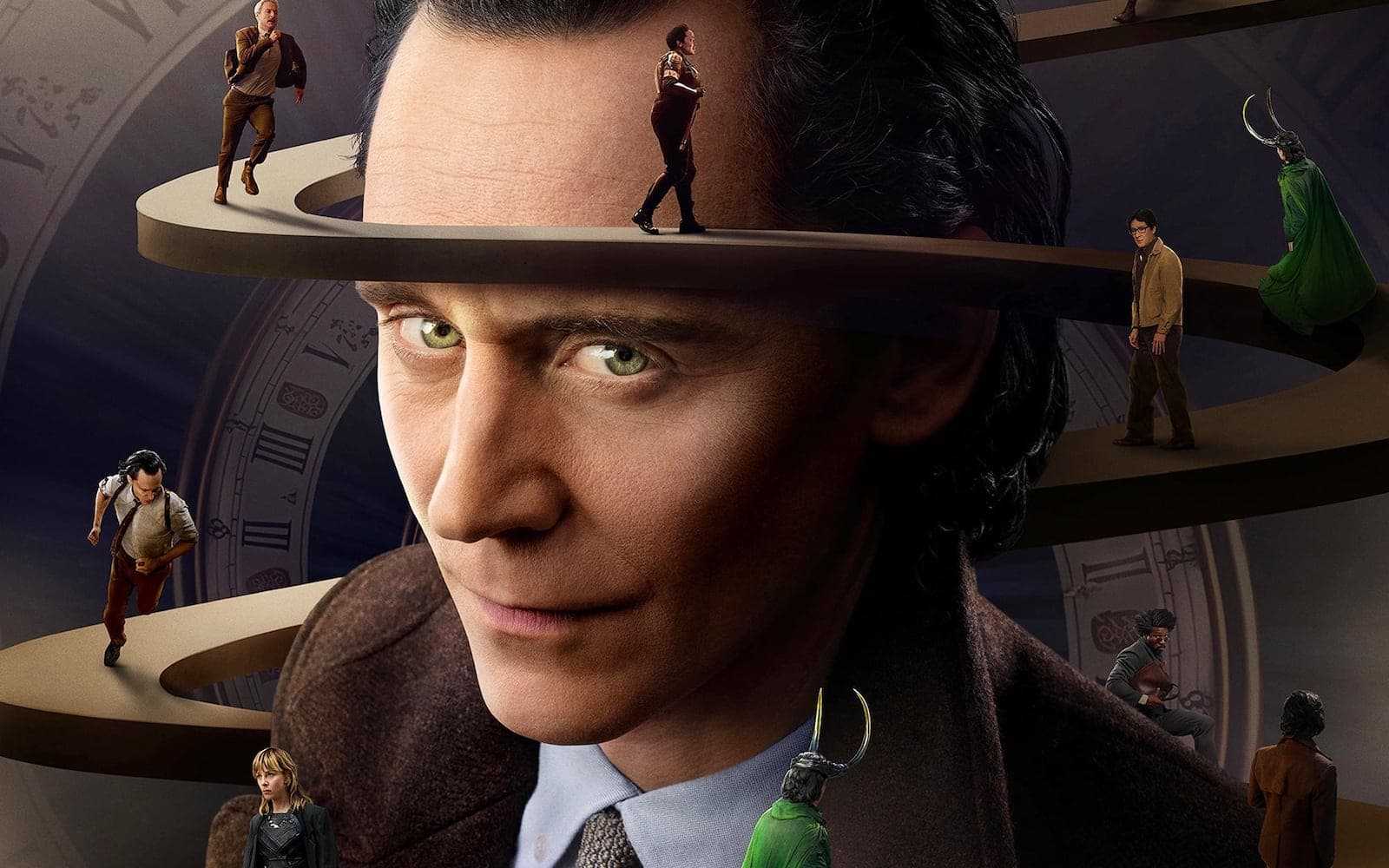
In order to better track my various cultural experiences (e.g., movies, TV shows, books, restaurants), I’ve created the Cultural Diet. Think of it as my own personal Goodreads, Letterboxd, and Yelp, all rolled into one (more info here). Every month, I recap everything that I watched, read, etc., in the previous month.
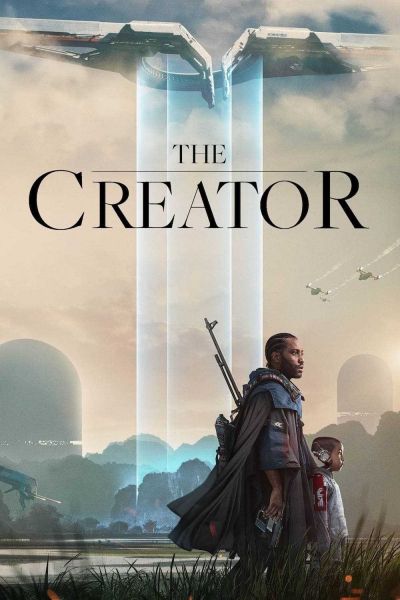
I often round up a half-star rating if for no other reason than I respect the fact that an artist put something out into the world for us to enjoy. Not so this time, because I’m annoyed that Gareth Edwards’ The Creator isn’t a better film. Much of the film’s hype centered on its visuals, and yes, The Creator contains some truly stunning visuals that evoke Blade Runner, were it set in Southeast Asia rather than dystopic Los Angeles. Impressively, Edwards shot his film for a “mere” $80 million, which just goes to show what’s achievable with a clear concept, good production design, and an expert approach to visual effects. Unfortunately, none of that translates to the storytelling, which is both heavy-handed and lazy, particularly when it comes to the burgeoning relationship between the two protagonists (a disillusioned American soldier and the robotic child super-weapon he’s supposed to kill), a relationship that Edwards really wants you to find moving and affecting. (And don’t get me started on the ham-fisted critique of American imperialism.) There are occasional flashes of brilliance — someone please make a movie that explores the theological ramifications of AI monks — but too much of The Creator feels like a string of gorgeous VFX shots in search of a good story, and ultimately left wanting.

I’ve been on something of a Lloyd Alexander kick lately, and with The Illyrian Adventure, I think I’m finally over it. Set in the late 19th century, this first in a series of six novels follows a headstrong young woman named Vesper Holly who decides to follow in the footsteps of her eccentric archaeologist father who mysteriously disappeared, and complete his expedition to the Balkan region of Illyria — with an appropriately fussy guardian in tow, of course. It’s a fine adventure story for the most part, though in a clear sign that I’m getting old, young Ms. Holly’s non-stop precociousness grew increasingly eyeroll-inducing as the novel went on.

Not to be confused with David Fincher or John Woo’s films, Choi Jae-hoon’s The Killer follows a hitman who’s roped into looking after his wife’s friend’s seventeen-year-old daughter. What should be an easy babysitting job turns dark, however, when the young girl gets lured into a sex trafficking ring, and the hitman must use his deadly skills to save her. Oh, and the film is a comedy… sort of. I watched this on Amazon Prime because I wanted a slick-looking action film, and there are, indeed, some very impressive action sequences. With his wardrobe, impeccable hair, and droll demeanor (which occasionally recalls “Beat” Takeshi Kitano), Jang Hyuk looks cooler than cool mowing down thugs, pimps, and other ne’er-do-wells. I just wish he was in a better film. In one scene, one of The Killer’s characters references Lee Jeong-beom’s The Man from Nowhere, arguably the best “deadly man protecting a young girl” movie ever made. I’m unsure if Choi Jae-hoon intended The Killer to be a parody of The Man from Nowhere or an attempt to create a similarly hard-boiled film, and that ambiguity is frustrating. In the end, The Killer’s tonal shifts and various implausibilities prove to be just a bit too much.
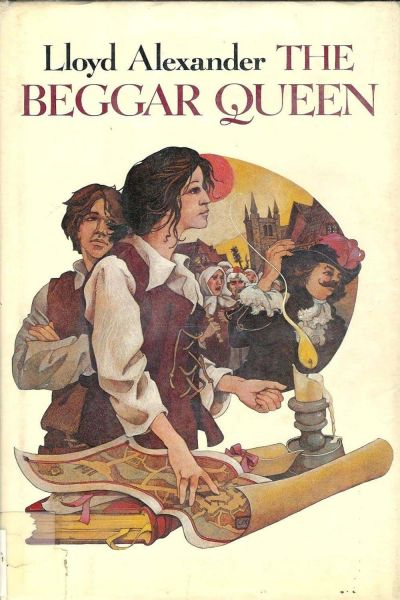
Lloyd Alexander’s Westmark trilogy — which takes place in a pseudo-historical alternative to Revolution-era France — comes to a middling close with The Beggar Queen. But perhaps that’s too harsh. Much like the previous book, The Kestrel, The Beggar Queen isn’t bad. But it toes the line between being palatable for kids and delving into the horrors and brutality of war. Alexander can’t make up his mind which way to go, and so it ends up just being a bit meh and all over the place. Towards the end, it feels like Alexander has even become bored with his own story, and so stuff just starts happening and resolving in a fairly perfunctory manner. I do realize that my assessment may be due to being a 47-year-old. If I’d read this as a 12-year-old, then I could easily see how it would’ve felt so “adult,” and thus, so much better than all of that other “kids’ stuff” I’d been reading. Indeed, my biggest regret with the Westmark novels is probably that I didn’t read them as a 5th or 6th grader first.
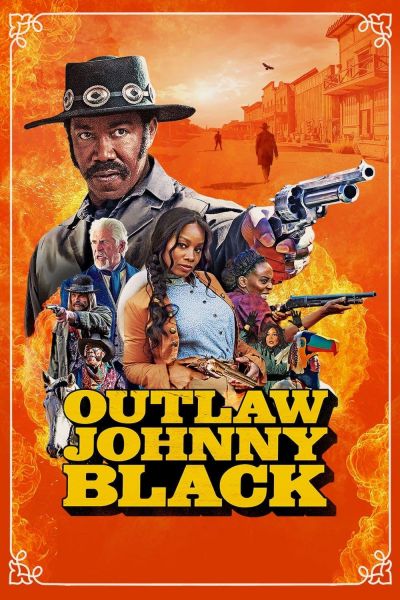
Back in 2009, Michael Jai White wrote and starred in Black Dynamite, an homage/parody to blaxploitation flicks like Black Belt Jones. Though uneven in places, Black Dynamite worked because it leaned hard into nostalgic campiness. I wish Outlaw Johnny Black, White’s homage/parody to spaghetti westerns, had done the same. But Django Unchained and Blazing Saddles this most definitely ain’t. Sure, I laughed several times, and the titular protagonist’s Gospel awakening was an interesting angle, but Outlaw Johnny Black is mostly a squandered opportunity due to its meandering storyline (which isn’t helped by its 2+ hour runtime) and aforementioned dearth of camp. (The shoddy special effects don’t count.) And for all of its racial humor and commentary (e.g., poking fun at Hollywood’s legacy of using non-indigenous actors for Native American roles), the film’s surprisingly toothless. This was clearly a passion project for White, and I’m sure the cast and crew had fun making it, but in this case, none of that resulted in a very good film.
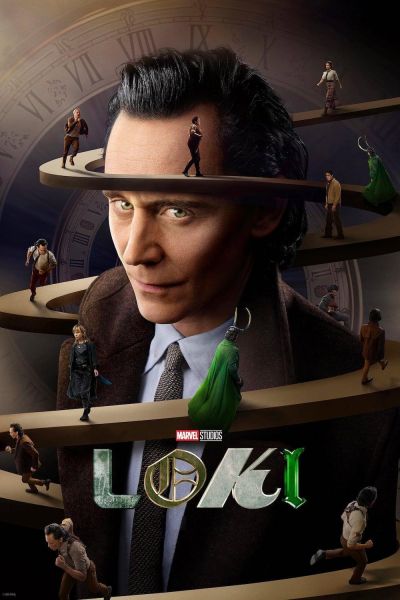
I hope I can critique Loki’s second season without sounding like one of those YouTube bros who post video screeds whining about how Captain Marvel is too woke, so here goes… There’s a lot to like about Loki: Tom Hiddleston’s performance, the TVA’s immaculate production design, the visual effects, Justin Benson and Aaron Moorhead’s direction. (The less said about Jonathan Majors’ performance, however, the better. He was underwhelming as He Who Remains and even more so as Victor Timely.) But given the MCU’s currently aimless state, it feels rather pointless and disconnected. Admittedly, earlier Marvel series like Agents of S.H.I.E.L.D and Daredevil were only tangentially connected to the MCU, but they didn’t focus on a character as prominent, or beloved, as Loki. Nor did they end with an event that’s arguably more significant than Thanos’ snap. But much like that Celestial corpse Eternals left floating in the ocean, it doesn’t seem like it’ll matter all that much, which robs Loki’s final triumph/sacrifice of some emotional and thematic heft.
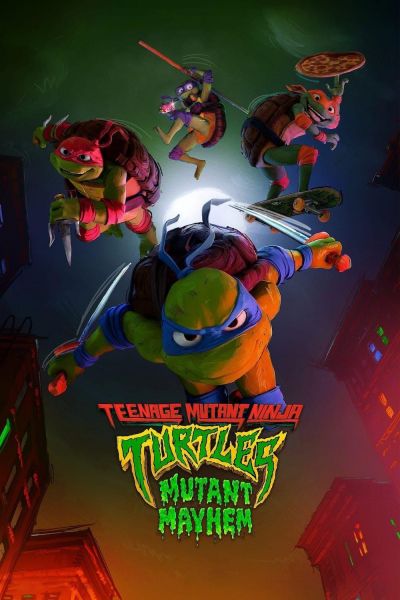
Although I watched a few episodes of the cartoon series back in the ’90s, I don’t have any real strong attachment to Teenage Mutant Ninja Turtles. I mainly watched Mutant Mayhem out of curiosity over its style of animation. There are bound to be comparisons to the Spider-Verse movies, but Mutant Mayhem’s style, though technically impressive in places, feels more unpolished and juvenile, as befitting the characters and subject matter. Between Mutant Mayhem, the Spider-Verse films, and Netflix’s Arcane, we’re entering a really cool new era that bridges the gap between traditional and CG animation, though I prefer those other two titles.

Inspired by a Tibetan folktale, Shuna’s Journey has many of the usual Hayao Miyazaki tropes (e.g., fantastical settings, a strong female protagonist) and touches on some of his pet themes, including both humanity’s relationship with nature and its proclivity for violence and exploitation. At the same time, it has a fairy tale-esque tone, particularly as the titular hero enters the strange lands of the god-folk — but as is Miyazaki’s wont, it’s tinged with darkness and mystery. Originally published in 1983, it might be tempting to dismiss Shuna’s Journey as a precursor to Nausicaä of the Valley of the Wind and Princess Mononoke — as if you’d ever really want to dismiss anything by Miyazaki, that is. But even with all of its familiarity, I was caught up within just a few pages thanks to Miyazaki’s gorgeous watercolors, poetic storytelling, and ability to pack so much life and energy into his illustrations. First Second Books’ edition contains a brief afterword by Miyazaki as well as some notes by translater Alex Dudok de Wit that offer some helpful insights into the story’s creation and themes.
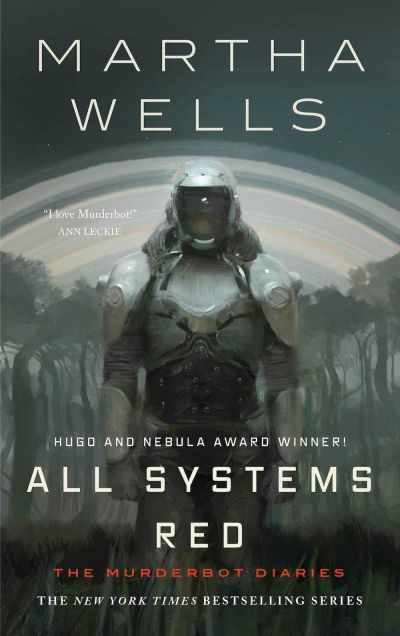
It may have won the Hugo Award for best novella, but I was surprisingly underwhelmed by All Systems Red. The concept is very promising: a security robot hacks its programming and becomes self-aware, which poses some thorny questions given its incredibly deadly — and, ahem, murderous — nature. But the actual storyline felt rather pedestrian, as the titular Murderbot struggles to help his latest clients, a group of researchers whose expedition on a distant and hostile planet has been compromised. There are hints at a broader storyline, but I don’t feel a deep need to check out the rest of Murderbot’s diaries.
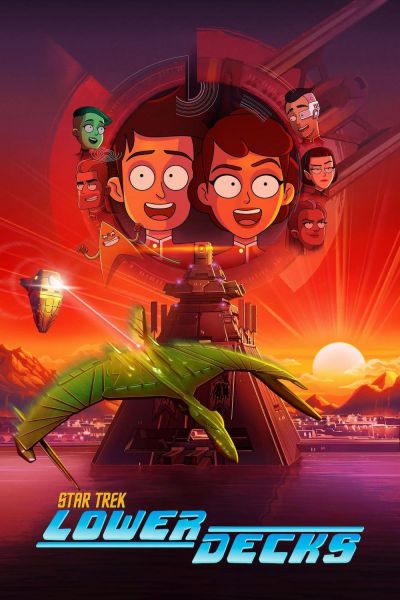
Is Star Trek: Lower Decks finally growing up? While this latest season still contained (juvenile) jokes and references aplenty, there was some distinct maturation as our lowly ensigns finally got promoted, sometimes against their will. Lower Decks has always had an outsider’s connection to the larger Star Trek universe. Sure, Riker and Q might pop up here and there, but the series’ events often felt disconnected from the rest of the canon. But this season contained some developments — e.g., the Ferengi applying for Federation membership, Nova Fleet — that ought to have some broader ramifications for the franchise. Also, Tendi and Rutherford are my favorite on-screen couple of any series right now, so I loved seeing Lower Decks finally address their relationship in a way that seemed set-up for one direction, only to go in a different direction that was subversive in its delightful wholesomeness.
Whenever we venture up to Omaha, it’s basically assumed that, time permitting, we’re going to eat at Tasty Pizza. Though it’s no longer located in that charming little house on Leavenworth, the pizza’s still just as good, er, tasty. There’s nothing all that flashy or eclectic about Tasty Pizza’s menu. Rather, they just focus on the essentials. As a result, though, I’ve never had a bad slice in all of the times I’ve gone there.